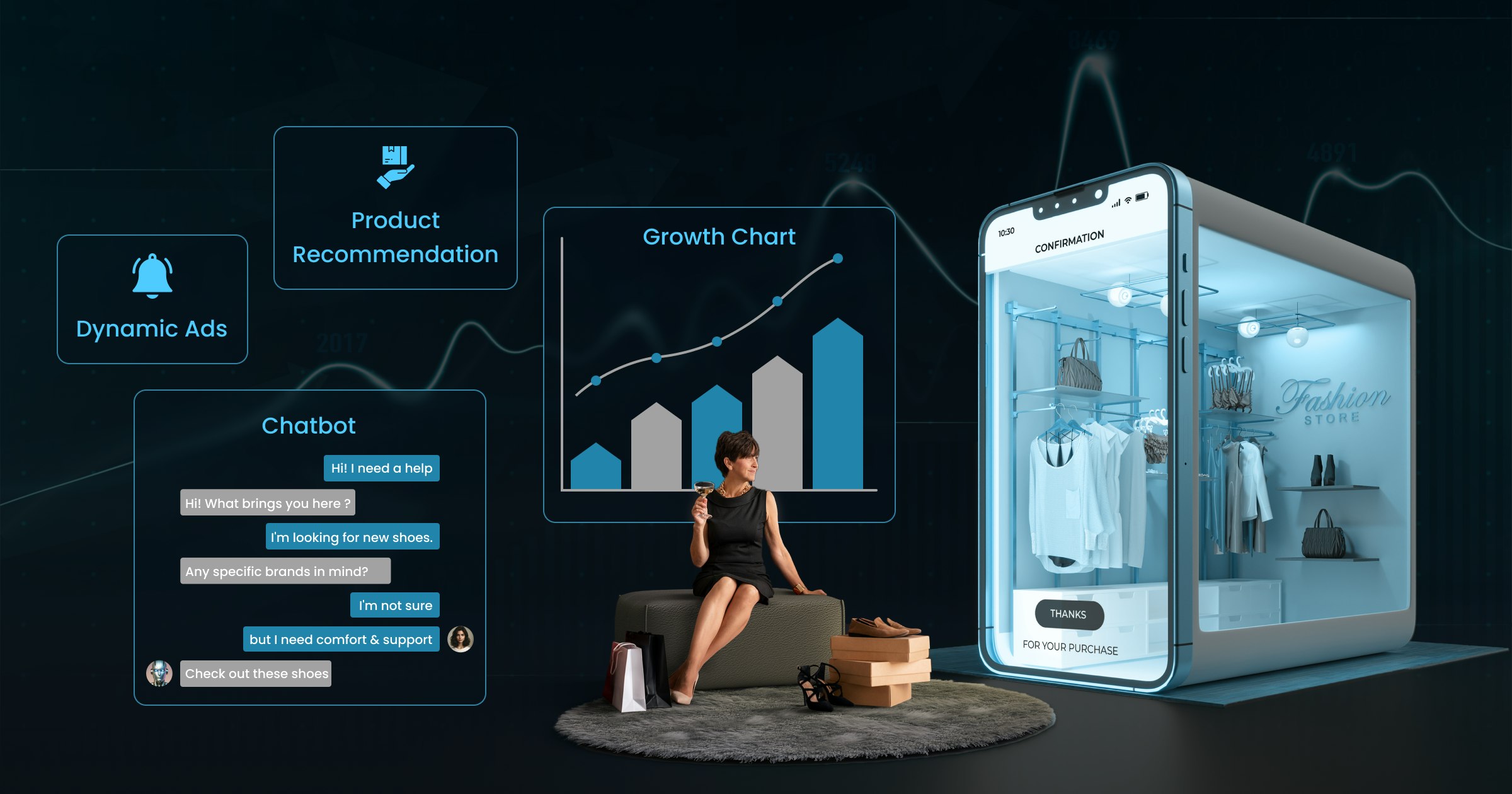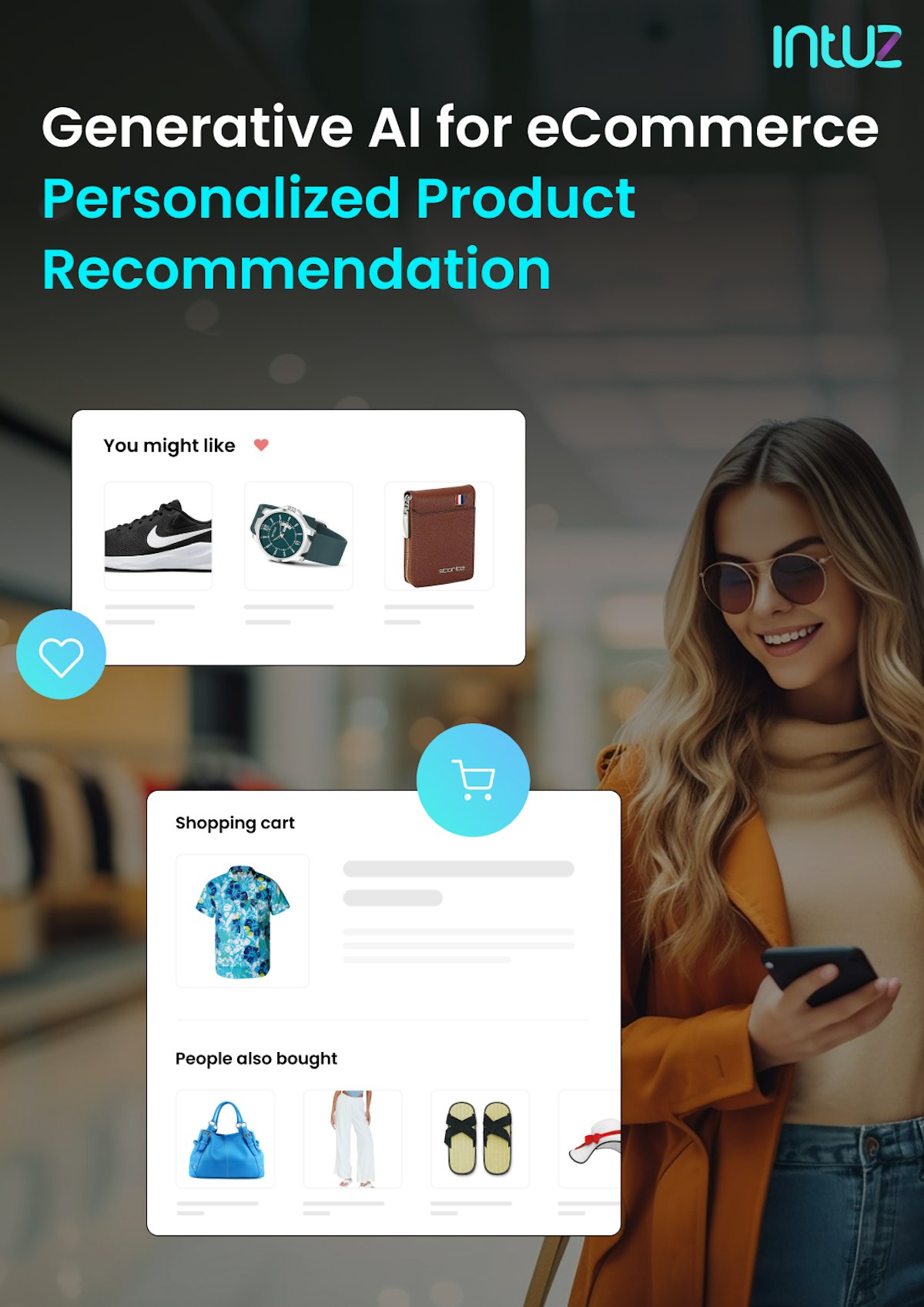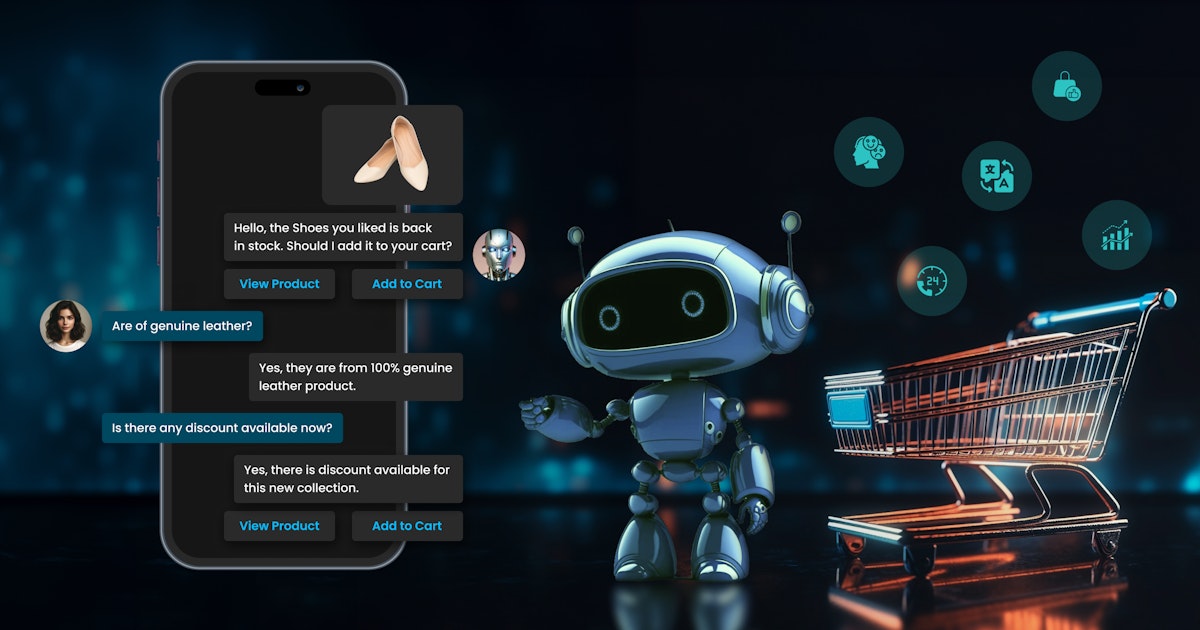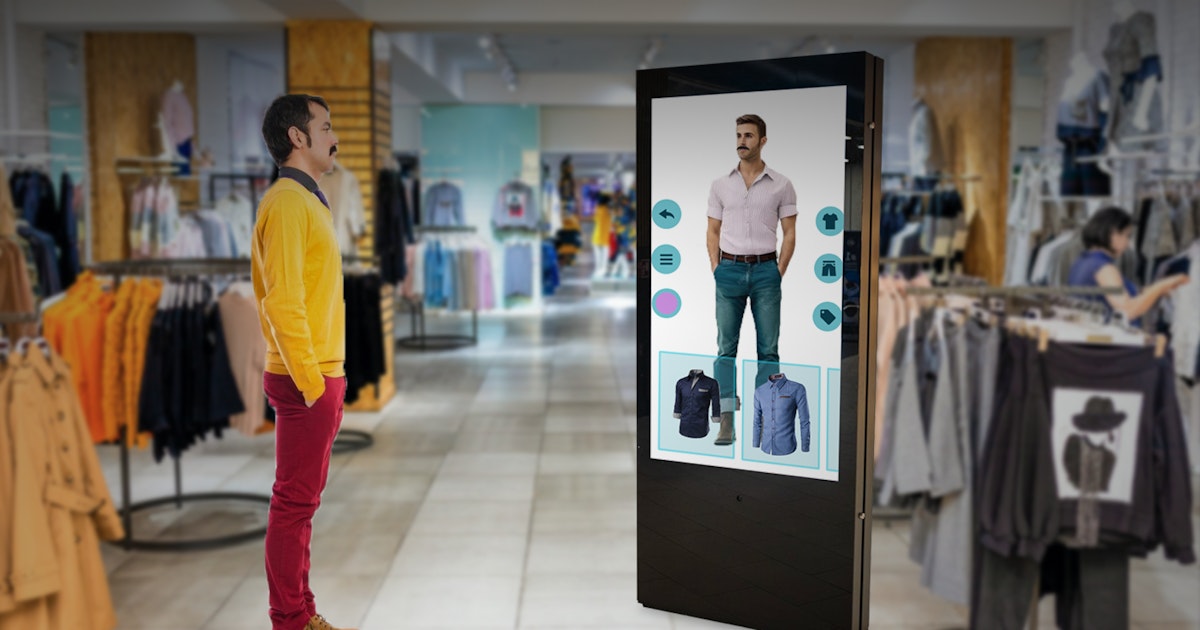Table of Content
In this day and age, everyone expects a seamless customer experience across all mediums, including physical stores, mobile apps, and social media pop-up shops, one where they can get quick and convenient service in real-time.
This fierce competition especially requires eCommerce websites to push the bar in attracting and converting potential customers. Sure, they used AI for the longest time to gain an edge—primarily for website personalization, inventory management, and price optimization—often with the support of an AI development company.
However, now, the narrative has completely flipped with Generative AI - a powerful tool empowering data-driven decisions across the sales funnel.
A branch of Artificial Intelligence (AI), it employs Machine Learning (ML) and Natural Language Processing (NLP) techniques to automatically generate unique content in the form of text, images, or music based on patterns and styles learned from extensive datasets.
In eCommerce, Generative AI has found its use as a valuable tool for facilitating custom outreach, higher engagement, and more online sales!
Did you know e-commerce businesses that invest in AI experience a 3%-15% revenue increase and a 10%-20% improvement in sales?
Regardless of where your eCommerce store is in the AI-enhancement process, you need to tap into the potential of this fully digital landscape and enhance the expected outcomes from your sales ROI. In this blog post, we will discuss just that!
Three ways to boost eCommerce sales ROI with Generative AI
Today, advanced AI-powered tools turn browsing into buying at a pace we have never seen. And the best part is, it is not about “more sales,” it is about “smarter sales.” This means that Generative AI tools have the potential to skyrocket your eCommerce business ROI through the roof. Here is how you can make that happen:
1. Hyper-personalize your product recommendations
Imagine a customer named Jane is searching for a new pair of running shoes in an eCommerce sports store. In a traditional eCommerce setup, she is presented with hundreds of thousands of shoes from different brands, sizes, and colors.
She has to manually filter the selection based on her preferences and spend time browsing through the shoes.
Without proper guidance, the process still leaves her under-confident about choosing the best shoe for her needs. Frustrated, she leaves the online store without making a purchase, impacting your shopping cart abandonment rate.
Enter AI-enhanced eCommerce shopping.
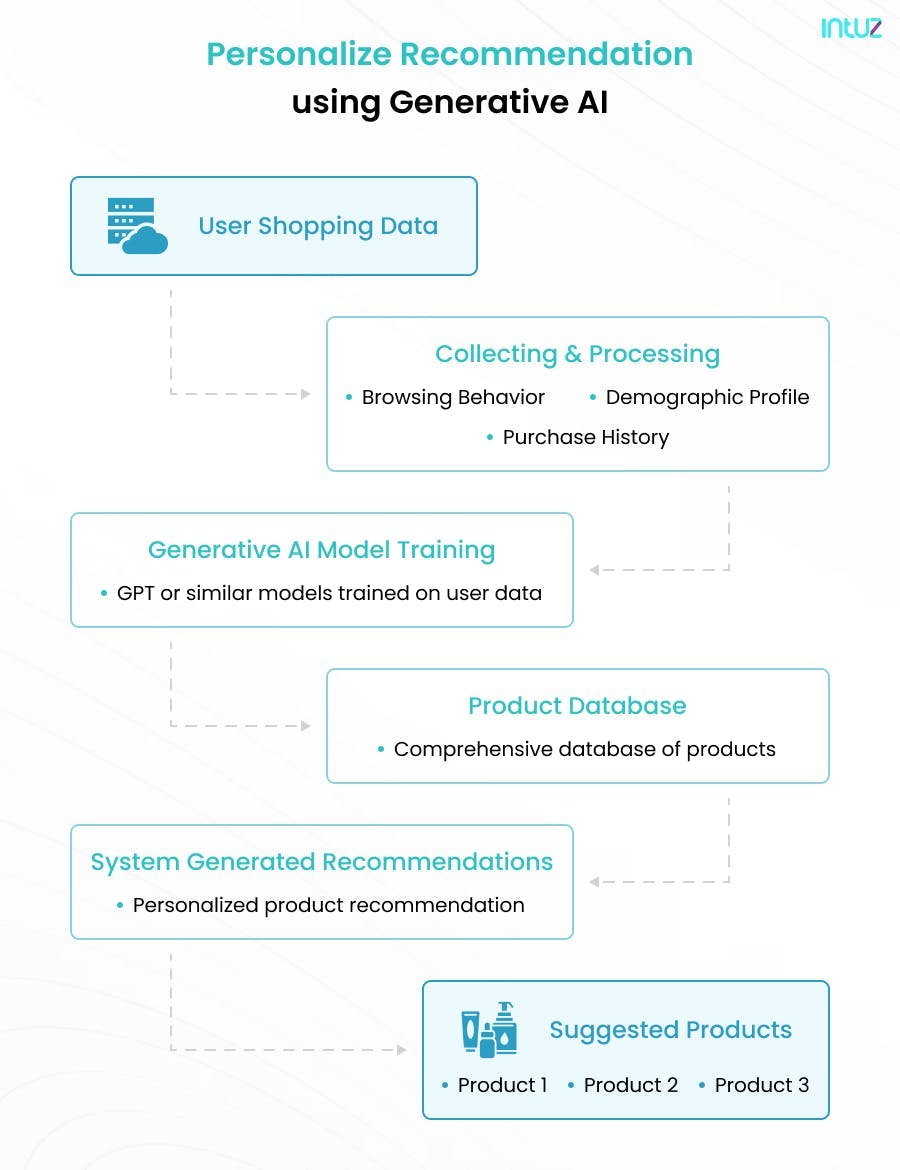
In this scenario, Jane is asked questions about her foot type, style preferences, usage needs, and whether she wants a specific shoe brand.
Using this information, Generative AI puts together a selection of shoes tailored to her requirements and gives her a personalized experience.
The approach keeps Jane engaged as she feels the eCommerce store “understands” her needs. She can find the perfect pair of shoes without much cajoling, increasing the likelihood of her purchasing and boosting the store’s sales ROI through highly effective generative ai based personalized product recommendations.
Forbes Insights reports that 40% of marketing leaders agree that customer personalization directly impacts eCommerce sales maximization, basket size, and profits. Another 37% regard product recommendations as the reason behind increased sales and Customer Lifetime Value (CLTV).
AI/ML algorithms employed in an eCommerce store analyze the customer’s browsing behavior, purchase history, demographic data, and other data points like wishlist items and abandoned products in the cart.
Generative AI technology uses this data to suggest products customized to individual customers based on:
a. Customer’s past searches or interactions on the website/app
If a customer searches for and reads reviews of several mystery novels on your eCommerce store, Generative AI makes it possible to recommend best-selling mystery novels and new releases in the mystery genre to them.
b. Customer’s recent product interaction
If a customer browses through a specific wireless headphones model, the advanced AI technology allows you to showcase headphones with similar features from different brands within the same budget.
c. Previously viewed Items/products
If the customer has searched for a DSLR camera, recommend other products that can go with this, such as a camera bag, tripod, compatible lens, and so on. This is an effective way to reduce bounce-offs and showcase catalog versatility.
Other smart product recommendation models include seasonal market trends and analyses of products often bought together or items bought by other customers with similar tastes and preferences.
Amazon’s “Recommended For You” section is perhaps one of the earlier examples of AI-driven personalization in eCommerce. Unique to each shopper profile, it suggests products based on the individual’s past searches, browsing habits, and preferences.
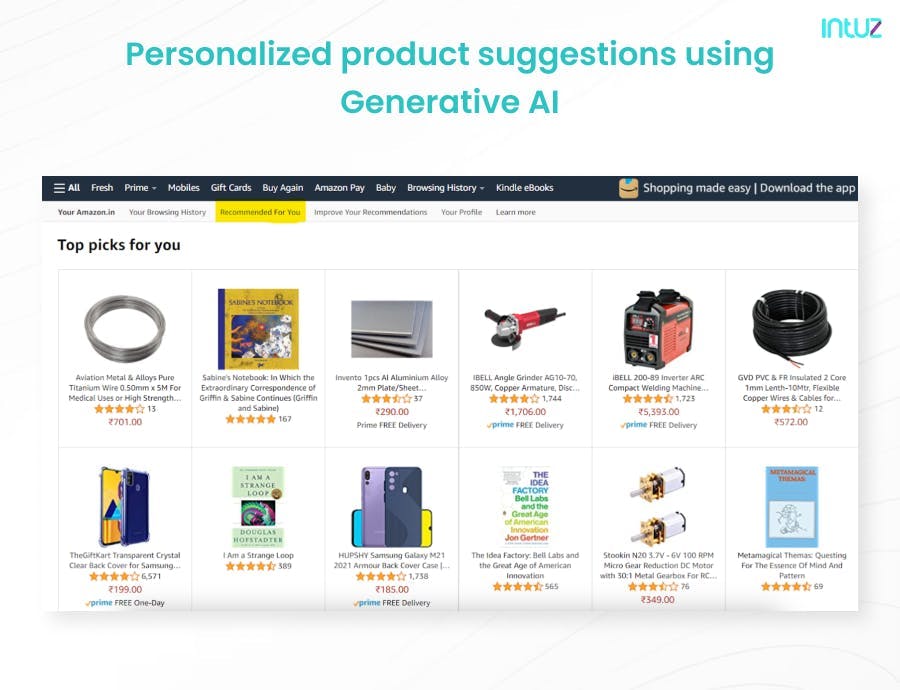
Amazon also compares this data with those of other customers to suggest certain products, thereby increasing catalog visibility.
2. Bank on chatbots, virtual try-on, and personalized content
It is critical to create an eCommerce ecosystem that understands and anticipates each customer’s needs. And what is better than integrating AI-powered chatbots to improve product discovery?
According to Salesforce, 82% of eCommerce businesses with AI have reported moderate improvement in how their customers explore, discover, and engage with products.
AI-powered chatbots leverage superior recommendation systems to deliver customized product suggestions and styling ideas by asking questions about product size, color, style, brand, or budget.
They can suggest different cross-selling or upselling options, intriguing the customer to the extent that they end up purchasing.
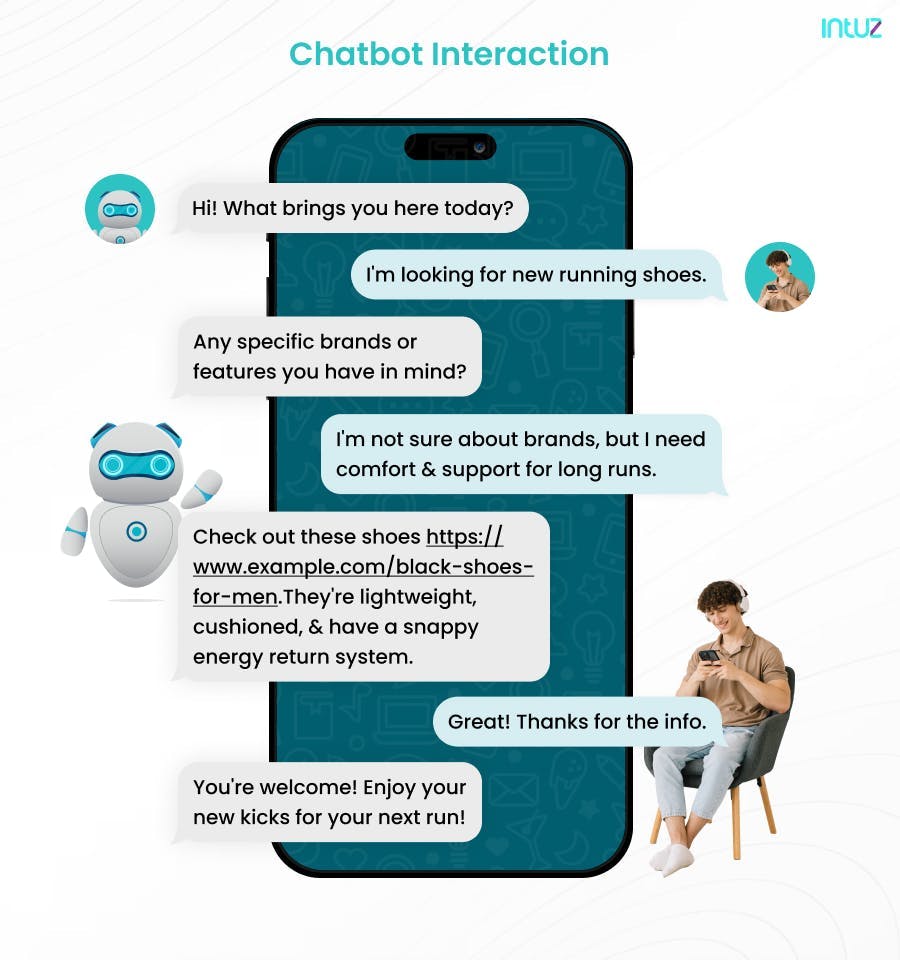
Besides, AI chatbots can personalize every message and answer queries with human-like empathy.
What if you want to recreate one of your favorite celebrity’s recent outfits? Instead of aimlessly browsing through different products, simply upload a photo of the famed fashionista and ask the AI chatbot to recommend similar products.
A bespoke experience like this opens doors to quick sales and customer loyalty.
Secondly, Generative AI virtual try-ons are gaining popularity for providing an immersive and accurate e-commerce shopping experience.
Also known as “virtual fitting” or “digital try-on,” it involves using a mobile device video or desktop webcam and Augmented Reality (AR) to virtually “try on” products.
Lenskart's virtual try-on technology allows users to see how different eyeglasses would look on their face before buying them online. Users can browse through hundreds of frames and virtually try them on using their webcam or uploading a photo.
According to Lenskart, virtual try-on has led to a 20% increase in conversion rates and a 30% reduction in product returns due to fit issues.
Baume & Mercier, the luxury watch seller, facilitates virtual try-ons on its site, allowing customers to try the watches and see how they look on their wrists.
Having such a feature instills a lot of confidence in online shopping. It also reduces the likelihood of returning the products, which, in turn, saves pick-up delivery costs that eCommerce businesses have to endure.
Lastly, write personalized product descriptions at scale. When you have a large catalog, this task can quickly become tedious.
Generative AI enables the auto-generating of hundreds of engaging and search-optimized product descriptions without leaving out the essential details.
The technology analyzes a wealth of customer data, identifies patterns and preferences unique to each customer, and uses this insight to produce targeted and relevant content.
For example, if data shows a trend where customers frequently choose eco-friendly products, Generative AI can write content that highlights the environmentally friendly attributes of products, thereby appealing more effectively to the eco-conscious consumer segment.
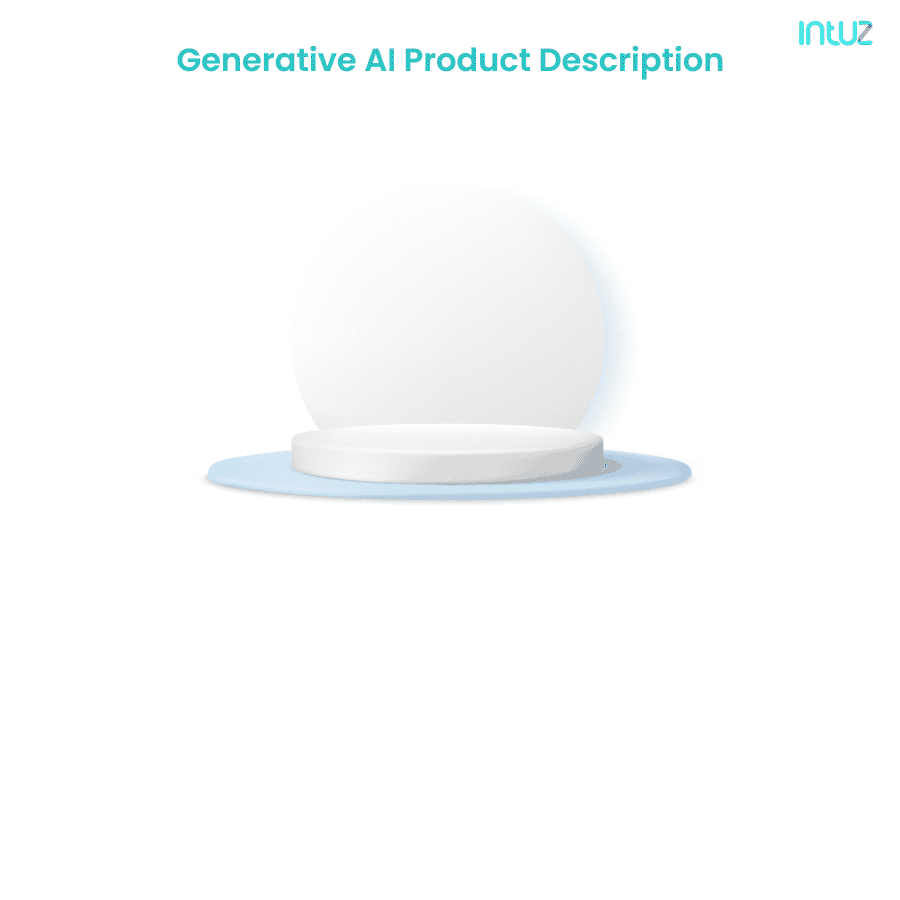
Because the descriptions are highly personalized, they increase the perceived relevance and value of the product, thereby increasing click-throughs, conversions, and ultimately, sales ROI.
3. Leverage dynamic pricing and personalized ads
It is established that customers track and compare prices of products online or in-store before they finally close a sale. They do not mind the hunt to get a hand on their favorite products at the most compelling rates.
Generative AI enables eCommerce businesses to find ways to stay agile in setting product prices. How, you ask? Through dynamic pricing.
Often referred to as “demand pricing,” “surge pricing,” or “time-based pricing,” it is a marketing strategy that allows businesses to adjust prices flexibly for their products or services based on current market conditions.
It uses AI-powered predictive analytics to analyze data such as customer behavior, inventory levels, and competitor pricing, and make informed decisions.
The most common example of dynamic pricing is the ride-hailing service provider Uber, which adjusts its cab rates in real time during peak traffic hours or heavy rains.
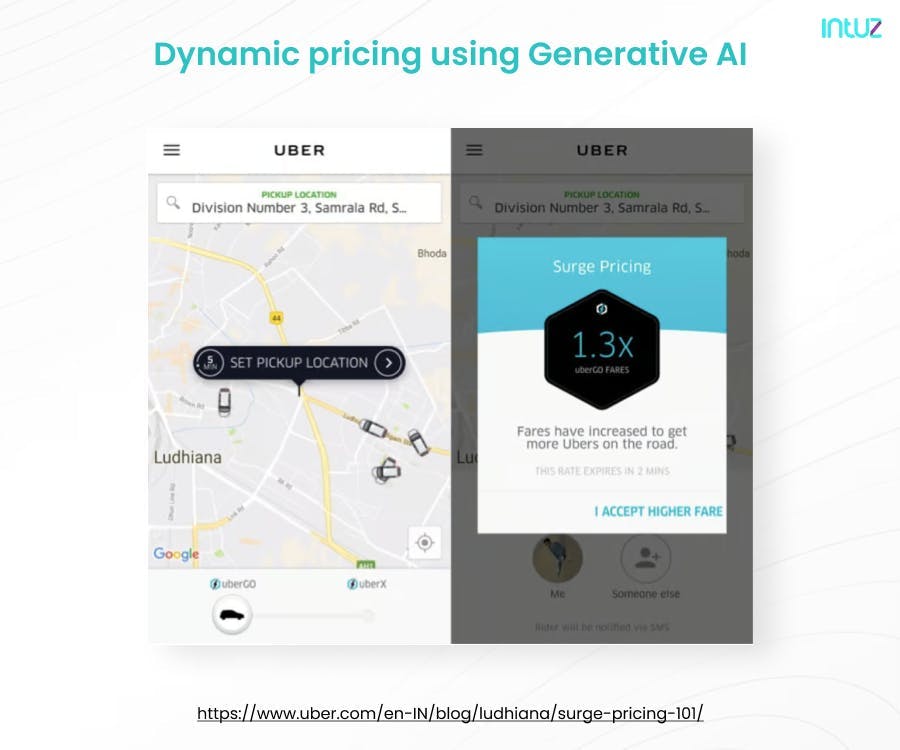
In eCommerce, the use of dynamic pricing is similar. You can offer discounts during slow periods or increase prices when the demand is high (especially during festivals), enhancing your ROI.
For example, during winter, you could price coats, socks, mufflers, and cardigans at a higher rate due to high demand and gradually decrease as the season progresses. This will maximize conversion and profit per sale.
Conversely, if a particular style of jeans is not selling well, lower the price to clear inventory. Such price optimizations enable you to stay competitive and maximize revenue while catering to customer preferences.
In addition, running personalized ads using AI-powered marketing can offer an engaging online shopping experience.
Using the data already collected by your eCommerce store, Generative AI can create personalized marketing materials - for example, a custom coupon code for the latest vacuum cleaners.
Such offers and discounts can appear as pop-ups on the site, app notifications, or newsletter banners, enticing customers to buy products they have previously shown interest in buying.
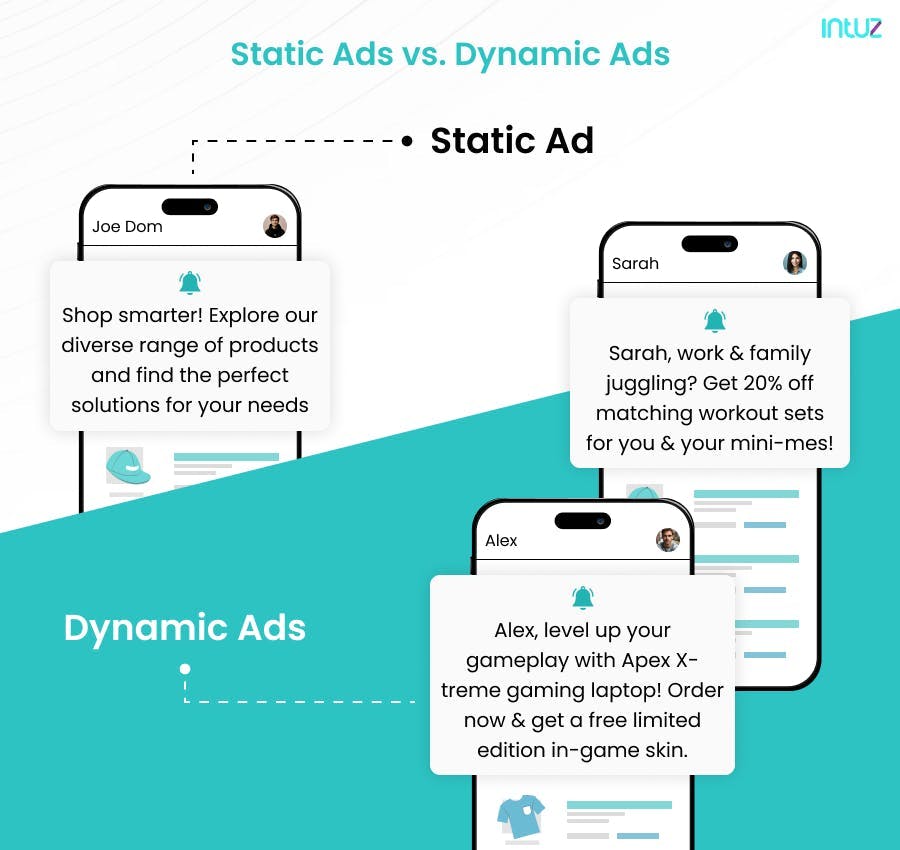
This targeted approach increases the likelihood of additional sales and potentially a larger basket size, thereby boosting ROI.
How to Boost Sales with Generative AI-powered Personalize Product Recommendations
Read nowIn conclusion
Generative AI breeds innovation in eCommerce, which, in turn, boosts sales ROI! Therefore, be an early adopter and apply all the strategies discussed in this blog post.
Take those insights from vast amounts of data to create a custom shopping experience that keeps your customers returning for more. Transform a mere search on Google into a full-fledged conversation with your customers. Guide them to products they are likely to enjoy and relieve them from tedious browsing through products generically placed.
Generative AI in eCommerce may be an emerging field. But if you leverage it with the proper support, you will save time, enhance customer satisfaction, and benefit from incremental revenue. Get a free consultation with our Generative AI expert to get started.
